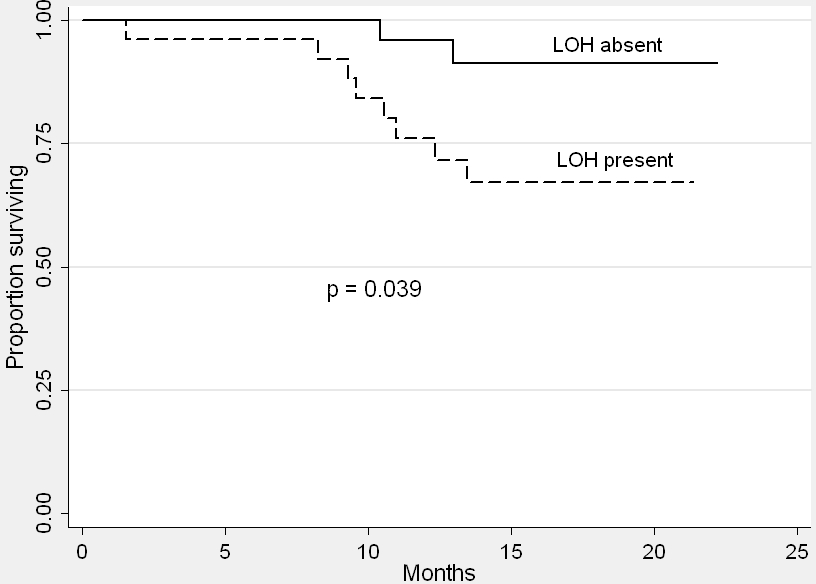Back to 2008 Program and Abstracts
Background: Traditional AJCC staging system for periampullary adenocarcinoma has been well validated but improvements in prognostic accuracy are still needed. We hypothesized that molecular and genetic methods may predict biological behavior and postoperative survival independently of stage.
Methods: Pancreatic ductal and ampullary carcinomas treated by pancreaticoduodenectomy in 2006 (n=50) were subjected to laser capture microdissection followed by loss of heterozygosity (LOH) analysis at 14 different chromosomal loci including 5q (APC), 6q (thrombospondin), 9p (p16), 10q (Pten), 12q (MDM2), 17p (p53), and 18q (DDC/DPC4). Mutations at k-ras exon 1 (codons 12 and 13) were assessed by PCR. The relationship between genetic alterations and clinical outcome was studied.
Results: Negative resection margins were achieved in 43 (86%) cases. AJCC stage distribution was: Ia/b (3), IIa (16), IIb (29), and III (2). K-ras mutations were observed in 31 cases (62%). Allelic losses were identified in 26 (52%) with a median fractional allelic loss score of 18% (range 7-64%). There was no concordance between LOH and k-ras mutations (McNemar p=0.405). Survival was significantly shorter in patients with allelic losses (17.5 versus 21.2 months; p=0.039). Both higher AJCC stage (HR=1.29, p=0.018) and presence of LOH (HR=6.60, p=0.027) were identified as independent predictors of shorter survival in a Cox regression model. Increased fractional allelic loss portended worsened survival (HR=1.043 per percent loss, p=0.034), whereas age and k-ras mutations did not.
Conclusion: Loss of heterozygosity predicts survival independently from stage in resected periampullary cancer. Allelic losses indicate more aggressive tumor biology and may improve risk stratification in future clinical trials.
Survival of patients with resected periampullary cancer stratified by LOH status.
 500 Cummings Center
500 Cummings Center +1 978-927-8330
+1 978-927-8330
 +1 978-524-0461
+1 978-524-0461